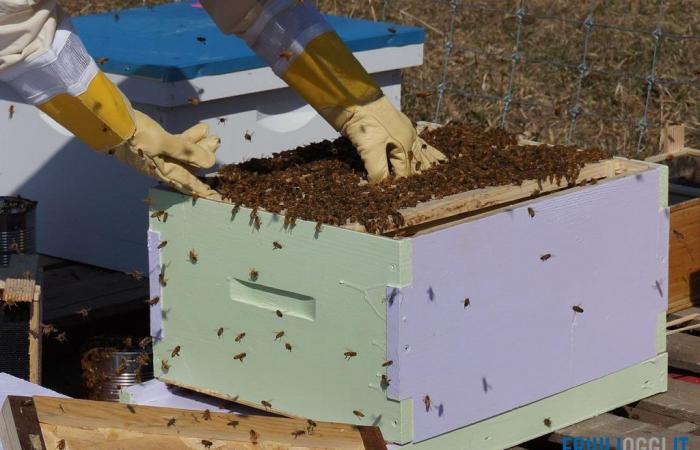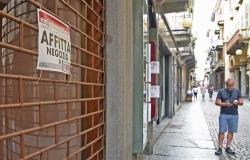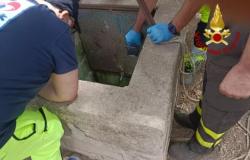The damage of bad weather to beekeeping: honey production close to zero.
“It was thought that last year, truly tragic for beekeeping, could no longer be repeated, but the current one is proving to be the worst experienced by beekeepers so far”. The president of the… raised the alarm Beekeepers Consortium of the province of Udine, Luigi Capponi, together with the representative of the Consortia of Beekeepers of Friuli Venezia Giulia, Elia Infanti. The reason is easy to say given the current climate trend, which gives an early June similar to an early November, in which “we find how regional beekeeping – continue Capponi and Infanti – is suffering almost beyond repair and irreversible. The cold at the beginning of spring, first, and the prolonged days of rain, then, caused a crisis that had never occurred in all these years”.
Bees can’t find nectar and pollen.
The problem is that bees cannot find flowers on which to collect nectar and pollen and, consequently, they are unable to bring their favorite food home to feed their family. In fact, in bad weather and when it rains, bees do not come out of their hives, do not visit the flowers and do not collect not only nectar, but not even pollen and, consequently, they are unable to pollinate the plants they have need the precious free work of these insects in order to produce fruit.
The consequences.
Furthermore, not being able to go out, they consume the food they have collected previously causing the stocks they had set aside to irremediably decrease, until they ran out. “The first consequence is that, certainly, we will not be able to put on our tables all that fruit and vegetables that are produced in the region with the painstaking work of bees – clarifies the president of the Consortium -. Another result of this failure of bees to forage on plants turns out to be another one that is even more serious. Beyond the lack of honey production and the lack of pollination, the bees are suffering because they are hungry.”
Cannibalism.
The honeycombs are low in honey and pollen and for the first time we are witnessing acts of cannibalism in the hives. “Bees, in fact, in order to survive – reports Capponi – are starting to cannibalize the youngest larvae to feed on royal jelly, which they find in their bodies and on the basis of the cells that they distribute, as food, for the first three days of life to all larvae. This tremendous operation ensures that they can give birth to larger larvae and feed themselves.”
Drones kicked out of the hives.
Another negative effect of this period of prolonged bad weather is that worker bees are already chasing drones (male bees) away from their families because they see them as an energy cost and, therefore, a caste to be eliminated because it is useless. In fact, drones are not always present in families, they are born in a matriarchal society only to carry out their function: that of mating with virgin queens. Once their “work” is finished they no longer do anything, or almost nothing. They, the drones, depend exclusively on their sister worker bees, they are unable to feed themselves because they have a very small ligula (a kind of sucking proboscis) with which they are unable to suck the nectar from the flowers and, therefore, it is the bees that they must fulfill this task and feed them. “The bees, therefore, having a shortage of food, stop feeding them – explains Capponi –, weakening them and the drones come to a bad end. It is nature that decided this way and this has been happening for millions of years. All this activity usually happens at the end of October in a normal period, but now it’s only the beginning of June”. The bees therefore run for cover and, in the absence of food as in this period, they eliminate everything superfluous, trying to favor the most precious asset, the queen bee.
Honey production in the region close to zero
“The Friulian beekeepers in their supers, to date, they have no honey to harvest because production is close to zero and the bees, before carrying the honey on the supers (the containers of surplus honey), must fill the nest frames and make the necessary supplies to survive the year – continues Capponi -. The same situation, it is reported, is also happening in other regions so we can foresee a strong increase in the import of low-cost foreign honey which raises doubts about its goodness and authenticity”.
Support from the Region
After having already reported the situation to the Region in recent weeks, now the same councilor for Agri-food Resources, Stefano Zannier, has announced support interventions for the beekeeping sector. “A precious support – conclude Capponi and Infanti – for which we thank the councilor and the Region. The measure, unfortunately, is full, and the desperation of many beekeepers is palpable because the future of many small businesses is at stake, as well as the much broader environmental problem.”
Video.


Do you want to remove national ads?
You can subscribe to only €1.10 per month by clicking here
Already a subscriber?
You can log in by going to the section Login from the site menu or by clicking here








